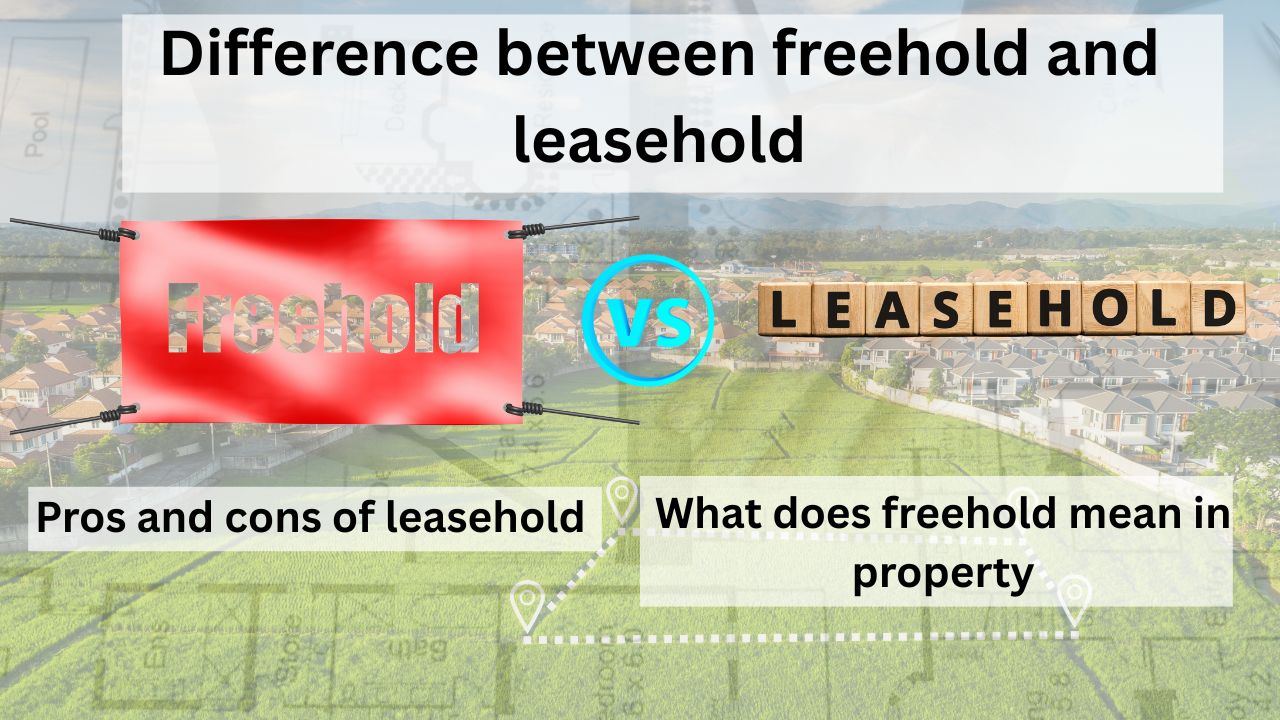Freehold vs Leasehold: Know the Difference Before You Buy
The two main categories for owning property are freehold and leasehold. There are some important practical and financial differences between the two and it may be one of the biggest decisions to make when buying a property.
This post will outline the differences and positives and negatives of freehold and leasehold properties and give you information for your when you are buying property.
What is a Freehold Property?
A freehold property indicates you own both the building in which you live plus the land on which it stands forever. You have complete power over your property as a freeholder; of course, it does need to comply with local laws and planning permissions.
Freehold advantages:
Full ownership: You own both the land and home forever.
No ground rent: You pay no yearly rents to landlords or third parties.
More control: You can do anything you like with it and can make changes, renovations, or lease anytime.
No lease ownership restrictions: You have no restrictions from a leaseholder on having pets, sub-letting, etc.
Disadvantages of Freehold:
Upfront cost: More expensive than leasehold properties generally.
Maintenance duties: You are responsible for maintaining the property and land.
Limitations in flats: Not common for flats, particularly in urban settings.
What is a Leasehold Property?
A leasehold property means you own the property for a set period (usually between 99 and 999 years), but not the land it sits on. The land is owned by a freeholder or landlord.
Leasehold Advantages:
Lower purchase price: Often cheaper than freehold, especially for first-time buyers.
Less maintenance: In flats, the freeholder generally manages and maintains the common areas.
Leasehold Disadvantages:
Lease time limited: When the lease is finished, ownership reverts back to the freeholder (unless you extend it).
Ground rent & service charges: You may need to pay annual fees, which could rise over time.
Restrictions: You may need permission to renovate, rent or have pets.
Degraded value: As the lease gets shorter, there could be impacts on property value.
Key Differences at a Glance
| Feature | Freehold | Leasehold |
|---|---|---|
| Ownership | Full, permanent ownership | Temporary, limited ownership |
| Land Ownership | Yes | No |
| Ground Rent | No | Yes |
| Maintenance | Owner’s responsibility | Shared or landlord-managed |
| Control Over Property | Full control | Subject to lease terms |
Which One Should You Choose?
Choosing either freehold and leasehold is contextual. Your purposes with the property, budget, and type of property will all influence your decision.
- Freehold is the best option for buyers looking for freedom of control, long-term security, and purchasing houses.
- Leasehold is a good option to anyone looking for value, low maintenance, or purchasing a flat in a building with shared ownership.
🔍 TIP FOR BUYERS:
When considering buying a leasehold property, you must check the:
- Remaining Years of the Lease
- Ground Rent and Service Charges
- Terms of the Lease and Restrictions
Final Thoughts
It is important to know the distinction between freehold and leasehold to make a wise investment in property. Freehold and leasehold can both provide you with their own brand of benefits and rest assured there will also be challenges too, so it is necessary to consider all options before signing a contract.
Do you want more property advice? Visit our website blog for the most recent information regarding real estate, home buying, and investment advice!
